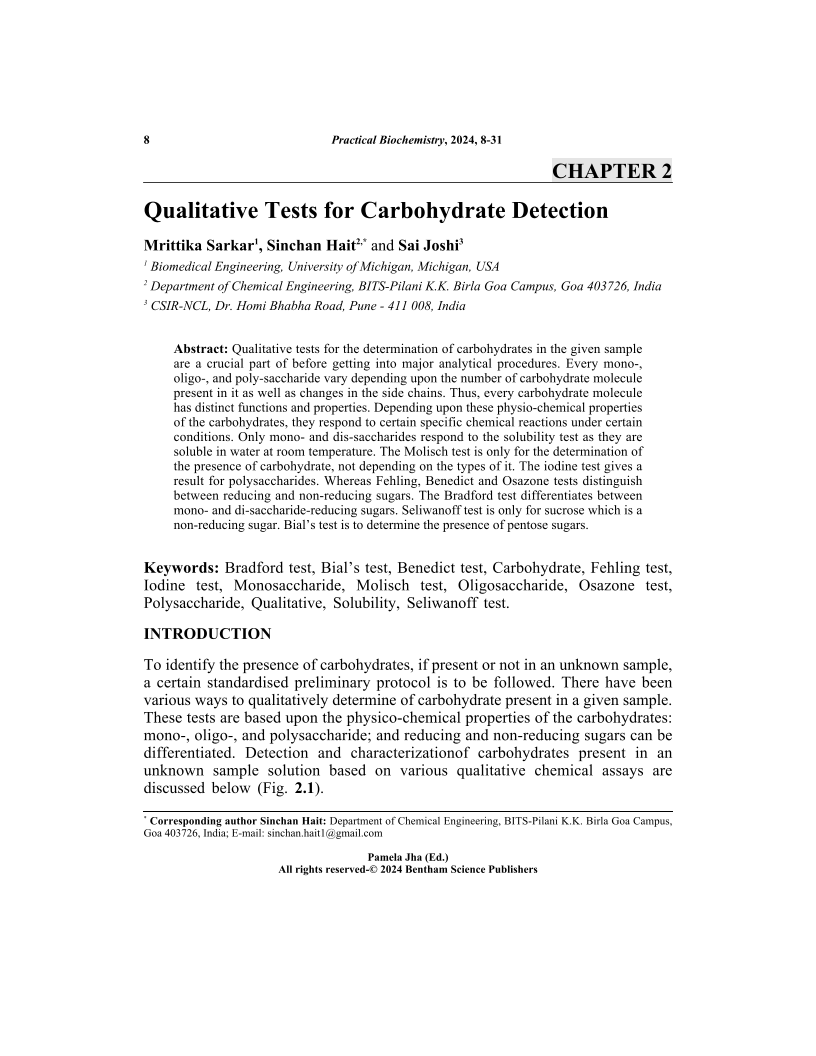Qualitative Tests for Carbohydrate Detection

- Authors: Mrittika Sarkar1, Sinchan Hait2, Sai Joshi3
-
View Affiliations Hide Affiliations1 Biomedical Engineering, University of Michigan, Michigan, USA 2 Department of Chemical Engineering, BITS Pilani K.K. Birla Goa Campus, Goa 403726, India 3 CSIR-NCL, Dr. Homi Bhabha Road, Pune - 411 008, India
- Source: Practical Biochemistry , pp 8-31
- Publication Date: August 2024
- Language: English
Qualitative Tests for Carbohydrate Detection, Page 1 of 1
< Previous page | Next page > /docserver/preview/fulltext/9789815165852/chapter-2-1.gif
Qualitative tests for the determination of carbohydrates in the given sample are a crucial part of before getting into major analytical procedures. Every mono-, oligo-, and poly-saccharide vary depending upon the number of carbohydrate molecule present in it as well as changes in the side chains. Thus, every carbohydrate molecule has distinct functions and properties. Depending upon these physio-chemical properties of the carbohydrates, they respond to certain specific chemical reactions under certain conditions. Only mono- and dis-saccharides respond to the solubility test as they are soluble in water at room temperature. The Molisch test is only for the determination of the presence of carbohydrate, not depending on the types of it. The iodine test gives a result for polysaccharides. Whereas Fehling, Benedict and Osazone tests distinguish between reducing and non-reducing sugars. The Bradford test differentiates between mono- and di-saccharide-reducing sugars. Seliwanoff test is only for sucrose which is a non-reducing sugar. Bial's test is to determine the presence of pentose sugars.
-
From This Site
/content/books/9789815165852.chapter-2dcterms_subject,pub_keyword-contentType:Journal -contentType:Figure -contentType:Table -contentType:SupplementaryData105

